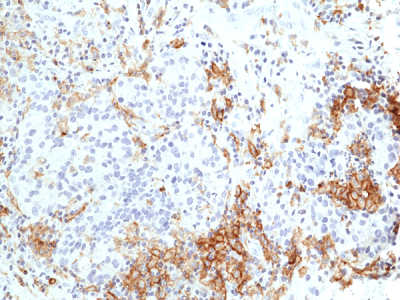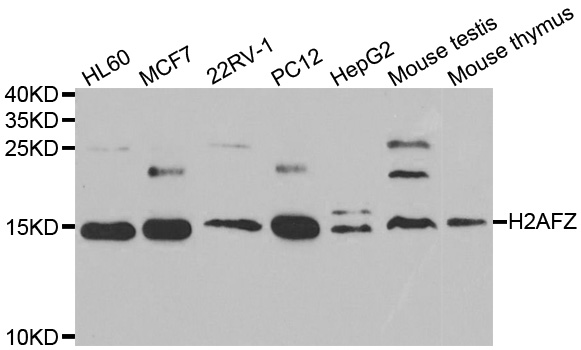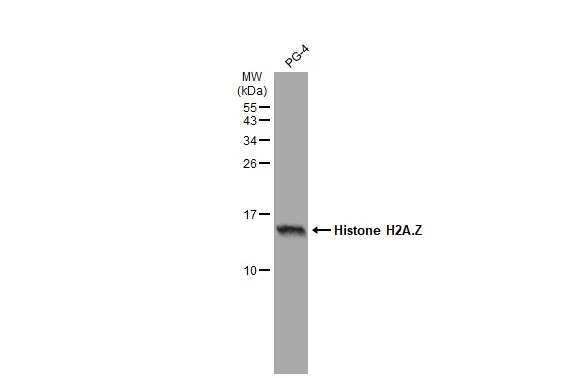
anti-TIM3 (Hepatitis A Virus Cellular Receptor 2), Rabbit Monoclonal (RM448)
REV-31-1340-00
ApplicationsWestern Blot, ImmunoHistoChemistry
Product group Antibodies
ReactivityHuman
TargetH2AZ1
Overview
- SupplierRevMAb Biosciences
- Product Nameanti-TIM3 (Hepatitis A Virus Cellular Receptor 2), Rabbit Monoclonal (RM448)
- Delivery Days Customer2
- ApplicationsWestern Blot, ImmunoHistoChemistry
- CertificationResearch Use Only
- ClonalityMonoclonal
- Clone IDRM448
- Gene ID3015
- Target nameH2AZ1
- Target descriptionH2A.Z variant histone 1
- Target synonymsH2A.Z-1, H2A.z, H2A/z, H2AFZ, H2AZ, histone H2A.Z, H2A histone family member Z, H2AZ histone
- HostRabbit
- IsotypeIgG
- Protein IDP0C0S5
- Protein NameHistone H2A.Z
- Scientific DescriptionRecombinant Antibody. This antibody reacts to human TIM3 (Hepatitis A virus cellular receptor 2). Applications: IHC, WB. Clone: RM448. Isotype: Rabbit IgG. Formulation: Liquid. 50% Glycerol/PBS with 1% BSA and 0.09% sodium azide. T cell Immunoglobulin and Mucin Domain-containing Molecule-3 (TIM-3) is present on T-helper type 1 lymphocytes and other immune cells including dendritic cells and natural killer cells. TIM-3 is overexpressed in CD4+ tumor-infiltrating lymphocytes, including those with non-small cell lung cancer associated with poor prognoses. The TIM gene family has an important role in the regulation of autoimmunity and allergies. TIM-3 has recently emerged as a potential target for cancer immunotherapy. - T cell Immunoglobulin and Mucin Domain-containing Molecule-3 (TIM-3) is present on T-helper type 1 lymphocytes and other immune cells including dendritic cells and natural killer cells. TIM-3 is overexpressed in CD4+ tumor-infiltrating lymphocytes, including those with non-small cell lung cancer associated with poor prognoses. The TIM gene family has an important role in the regulation of autoimmunity and allergies. TIM-3 has recently emerged as a potential target for cancer immunotherapy.
- ReactivityHuman
- Storage Instruction-20°C,2°C to 8°C
- UNSPSC41116161






